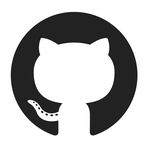RustDesk: A Self-Hosted Alternative to Remote Desktop Solutions
January 24, 2025, 5:22 am

Location: United States, California, San Francisco
Employees: 1001-5000
Founded date: 2008
Total raised: $350M

Location: United States, California, San Francisco
Employees: 201-500
Founded date: 2013
Total raised: $332M
In a world where remote work is the new norm, the demand for reliable remote desktop solutions has skyrocketed. Enter RustDesk, an open-source application that promises to deliver seamless remote desktop access without the need for third-party servers. It’s like having your own digital key to unlock any computer, anywhere, anytime.
RustDesk is built on the Rust programming language, known for its speed and safety. This application allows users to host their own server, offering a robust alternative to popular services like TeamViewer. Imagine having a personal assistant who knows your every need, ready to help you access your files and applications from afar.
Setting up RustDesk is straightforward. Users can install a synchronization server on their own hosting service, enabling any machine on the internet to connect through this server. The beauty of RustDesk lies in its ability to facilitate direct connections between devices. If a direct connection fails, it gracefully falls back to using the server, ensuring that remote access remains uninterrupted. With a bandwidth requirement ranging from 30 Kbps to 3 Mbps, it’s efficient enough for most office tasks.
The client application is available for iOS and Android, allowing users to control Windows, Linux, and macOS desktops from their smartphones. It’s like having a remote control for your computer, right in your pocket. Additionally, a web client is also available, expanding accessibility even further.
However, not everything is open-source. The server component of RustDesk is closed-source, which means the company can charge for its use, even on self-hosted setups. The free version comes with limitations, but for many users, it still offers a powerful tool for remote access.
Installing RustDesk on an Ubuntu server is a breeze. Users can choose between Docker container installation or a standard .deb package installation. For beginners, Docker is recommended due to its simplicity. Just copy the `compose.yml` file, make a few adjustments, and you’re ready to go. Fresh Docker containers are automatically generated with each release, ensuring users always have the latest version.
The server requirements are minimal. A basic VPS configuration is sufficient, and even a Raspberry Pi can serve as a host. This flexibility makes RustDesk accessible to a wide range of users, from tech enthusiasts to small businesses.
Once the server is up and running, installing the client applications is equally simple. Users connect to the server using the provided IP address and public key. It’s a straightforward process that demystifies remote access. The client installations are quick, taking mere seconds to complete. After installation, users can easily manage remote desktops by entering the remote ID.
RustDesk’s desktop versions utilize Flutter for their graphical user interface, ensuring a modern and responsive experience. For those who prefer command-line tools, RustDesk also offers console utilities, making it versatile for different user preferences.
For those seeking even more control, RustDesk provides options for manual installation and configuration. Users can build the server from source code, allowing for a tailored experience. This is particularly appealing for developers who want to customize their remote desktop solution.
In addition to RustDesk, there are other open-source alternatives worth mentioning. Tools like Remotely, Screego, and MeshCentral+Tactical RMM offer varying features and capabilities. However, RustDesk stands out for its ease of use and self-hosting capabilities.
The landscape of remote desktop solutions is evolving. As more people embrace remote work, the need for secure, efficient, and user-friendly tools will only grow. RustDesk is poised to meet this demand, offering a self-hosted solution that empowers users to take control of their remote access needs.
In conclusion, RustDesk is more than just a remote desktop application; it’s a gateway to a world of possibilities. With its open-source foundation, ease of installation, and flexibility, it’s an excellent choice for anyone looking to enhance their remote work experience. Whether you’re a freelancer, a small business owner, or just someone who needs to access their computer from afar, RustDesk is ready to unlock the door to your digital workspace.
In a time when connectivity is crucial, RustDesk offers a reliable and efficient solution. It’s like having a personal bridge to your digital world, ensuring you can reach your files and applications whenever you need them. As remote work continues to shape our professional landscape, tools like RustDesk will play a vital role in keeping us connected and productive.
RustDesk is built on the Rust programming language, known for its speed and safety. This application allows users to host their own server, offering a robust alternative to popular services like TeamViewer. Imagine having a personal assistant who knows your every need, ready to help you access your files and applications from afar.
Setting up RustDesk is straightforward. Users can install a synchronization server on their own hosting service, enabling any machine on the internet to connect through this server. The beauty of RustDesk lies in its ability to facilitate direct connections between devices. If a direct connection fails, it gracefully falls back to using the server, ensuring that remote access remains uninterrupted. With a bandwidth requirement ranging from 30 Kbps to 3 Mbps, it’s efficient enough for most office tasks.
The client application is available for iOS and Android, allowing users to control Windows, Linux, and macOS desktops from their smartphones. It’s like having a remote control for your computer, right in your pocket. Additionally, a web client is also available, expanding accessibility even further.
However, not everything is open-source. The server component of RustDesk is closed-source, which means the company can charge for its use, even on self-hosted setups. The free version comes with limitations, but for many users, it still offers a powerful tool for remote access.
Installing RustDesk on an Ubuntu server is a breeze. Users can choose between Docker container installation or a standard .deb package installation. For beginners, Docker is recommended due to its simplicity. Just copy the `compose.yml` file, make a few adjustments, and you’re ready to go. Fresh Docker containers are automatically generated with each release, ensuring users always have the latest version.
The server requirements are minimal. A basic VPS configuration is sufficient, and even a Raspberry Pi can serve as a host. This flexibility makes RustDesk accessible to a wide range of users, from tech enthusiasts to small businesses.
Once the server is up and running, installing the client applications is equally simple. Users connect to the server using the provided IP address and public key. It’s a straightforward process that demystifies remote access. The client installations are quick, taking mere seconds to complete. After installation, users can easily manage remote desktops by entering the remote ID.
RustDesk’s desktop versions utilize Flutter for their graphical user interface, ensuring a modern and responsive experience. For those who prefer command-line tools, RustDesk also offers console utilities, making it versatile for different user preferences.
For those seeking even more control, RustDesk provides options for manual installation and configuration. Users can build the server from source code, allowing for a tailored experience. This is particularly appealing for developers who want to customize their remote desktop solution.
In addition to RustDesk, there are other open-source alternatives worth mentioning. Tools like Remotely, Screego, and MeshCentral+Tactical RMM offer varying features and capabilities. However, RustDesk stands out for its ease of use and self-hosting capabilities.
The landscape of remote desktop solutions is evolving. As more people embrace remote work, the need for secure, efficient, and user-friendly tools will only grow. RustDesk is poised to meet this demand, offering a self-hosted solution that empowers users to take control of their remote access needs.
In conclusion, RustDesk is more than just a remote desktop application; it’s a gateway to a world of possibilities. With its open-source foundation, ease of installation, and flexibility, it’s an excellent choice for anyone looking to enhance their remote work experience. Whether you’re a freelancer, a small business owner, or just someone who needs to access their computer from afar, RustDesk is ready to unlock the door to your digital workspace.
In a time when connectivity is crucial, RustDesk offers a reliable and efficient solution. It’s like having a personal bridge to your digital world, ensuring you can reach your files and applications whenever you need them. As remote work continues to shape our professional landscape, tools like RustDesk will play a vital role in keeping us connected and productive.